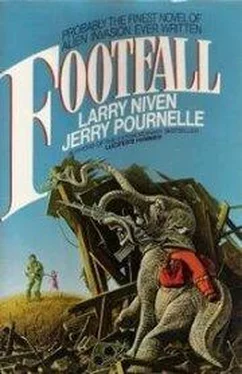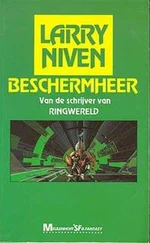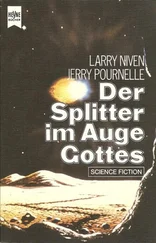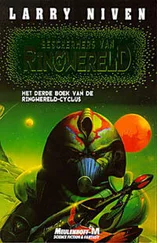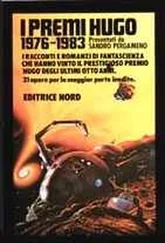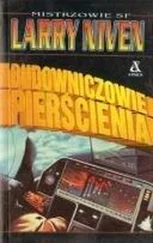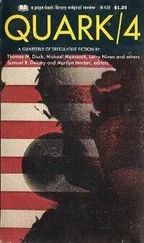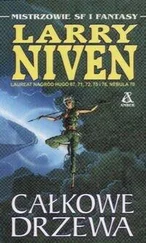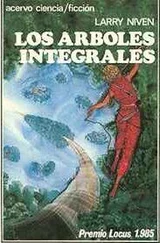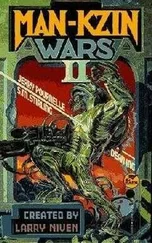“Only partially. Even with our largest radars it is difficult to see through the electronic storms in the upper atmosphere. The aliens have set off many weapons there.”
“I know—”
“Also, they have fired laser beams at three of our large radars,” Marshal Shavyrin said.
“Laser beams?”
“Da. The most powerful we have ever seen.”
“Damage?”
“The Abalakovo radar is destroyed. The Sary Shagan and Lyaki radars are damaged but survive. We have not activated the large radar near Moscow for fear that it will draw their fire.”
“I see.” Intelligent of him. “We will need information, but not at that cost. Now tell me what you know of their smaller ships.”
“My information is not complete. We have lost communications with many of our radars.”
“Da, but tell me what you have learned.”
“The ships have scattered. Most are in polar orbits.”
“Track them. If they come within range of the ion beam weapons, fire at them. Be prepared to fire SS-20 missiles under ground detonation control. Meanwhile, attack the main alien ship with the entire force of SS-18 missiles based in Kamensk.”
“Comrade Director, I require authorization from the Chairman before I can do any of this.”
“Comrade Marshal, the Chairman has directed me to conduct this battle. We have no communication with Moscow. You must launch your forces against the aliens, particularly their large mother ship. We must cripple it before it destroys us on the ground.”
“Comrade Director, that is not possible—”
“Comrade Marshal, it must be made possible—”
“If we attack the alien ship, we will destroy Kosmograd as well. And all survivors.”
A strange sentiment for the commander of strategic rocket forces. “Kosmograd is already destroyed. The survivors cannot be important now.”
“Comrade Director,” Colonel Suvorov shouted. “I have the Chairman.”
“Marshal, the Chairman is calling me. Please stand by.” Bondarev took the other phone.
There was no mistaking the thick voice. “Bondarev, what must we do?”
“Destroy the alien ship. I would prefer not to, but there is no choice.”
“Have the aliens attacked the United States?”
“Comrade Chairman, I do not know.”
“They have attacked us,” Chairman Petrovskiy said. “Can we defeat the aliens? Can we destroy their ship?”
“I do not know. We certainly cannot capture it. We can try to destroy it.”
“Da. Try, then. Meanwhile, we will do what we can. There are reports of severe damage in the harbors. The rail center west of Moscow is in ruins. So is Brest Litovsk.”
“But …” Bondarev spoke in horror. “The Germans—”
“Da. The Germans may rise in revolt. The Poles as well.” The Chairman’s voice rose. “All the Warsaw Pact nations may rise against us. Our harbors are destroyed, harbors and rail centers. We face a new civil war. If the United States remains undamaged—”
“Comrade Chairman, I do not know that they are undamaged. I do know that we must destroy that ship. You must order Marshal Shavyrin to accept my orders to launch missiles at the alien.”
There was a long pause. “We must retain enough missiles to prevent the United States from attacking us now that we are weakened,” Petrovskiy said.
“Da. I will do that,” Bondarev said. “But if we do not act quickly, we cannot act at all.” I have never spoken this way to the great ones, not even to my father-in-law. But I must — “Comrade Chairman, there is no time to lose.”
There was another long pause. Then “Da. I will give the orders. But — have a care, Pavel Aleksandrovich. Have a care.”
Be ye therefore wise as serpents, and harmless as doves.
—Matthew 10:16
COUNTDOWN: H PLUS ONE HOUR
The air was foul and growing fouler; it was like being trapped inside a whale’s lungs. Giorge, gasping and coughing and fighting the soft walls, had finally fainted. The beach ball’s oxygen supply wasn’t designed for two occupants.
It was a hell of a situation in which to try to relax, but Wes tried: he held his breathing slow and steady (punctuated with coughing); he let his eyelids droop (though he had to watch that great armored city in the sky coming toward him!) Half curled toward fetal position, he consciously relaxed his muscles in pairs, as if he were fighting a night of insomnia.
All this, while traveling like a tethered balloon behind their massive inhuman captors.
Naked in the glare of the stars, helpless as a babe, Wes fell toward an alien artifact bigger than the World Trade Center. He saw detail as he neared the thing: a pod on a jointed arm, rectangles of blackness, a jet of blue flame from a cluster of cones. But the air was like soup. His nose was clogged with drying blood. Hold the breathing down, stay awake, there are things you have to see … no use. His chest heaved, a coughing fit wracked his body, and everything went out of focus.
Arvid Rogachev was finding a great deal to awe him, and not much to surprise him. A ship the size of a city: of course, if they hoped to conquer a planet! The aliens: very alien. The attack: why not? Whatever they expected from contact with humankind, it was their safest approach.
Which was not to say that he wasn’t angry.
How would they treat prisoners? Human precedent showed a wide spectrum … but wouldn’t they want to inspect the natives more closely? These attackers hadn’t had time to build up a hatred for the enemy, not yet. What they found alive, they would keep alive … unless they were xenophobic beyond sanity, or found the human shape intrinsically disgusting …
Still, a corpse dead of explosive decompression was not the ideal subject for dissection. Might they prefer a healthy Soviet executive?
Arvid shrugged off that line of thought. Who still lived? Dawson, of course, and Giorge. Nikolai too had reached a survival bubble. Aliana? The other American, Greeley?
A dozen of the beasts had followed the first, the scout, through the ripped wall, paused briefly to inspect the humans, then gone off into other parts of the wrecked station. The four who remained had enlarged the rip with a series of explosive gun blasts. Now the survival bubbles were being towed toward what seemed an infinite metal wall.
He wished for a better look at the aft end, the drive; but they were approaching from the side. Dark holes showed along the flank, with doors snugged against the hull. Airlocks, or missile ports? Those oval windows: for passengers, or lasers? A sudden narrow string of twinkling points against the black sky: random dust motes reflecting a laser beam? Sure enough, a new star blazed far away, then winked off. Far below, lights flashed against Earth’s night sky. Something blossomed impossibly bright, and Arvid turned his head away.
A nuclear weapon. Whose? And how close was it? He fought real panic. How long do I have to live? Almost he laughed. It had been a long way away, near the Earth’s surface, ten thousand kilometers and more. I have looked upon the cocatrice and survived …
Other lights flared far down toward Earth. Light beams stabbed downward through space flecked with dust and debris. Bondarev is attacking the alien ship. Perhaps the United States as well. He had never felt more helpless.
They were close enough to the ship for him to see details. Grooves ran along the spacecraft’s flank, like railroad tracks, but much farther apart. Smaller craft could have been anchored there … smaller, but still big, perhaps as big as a pocket battleship. The entire hull might function like an aircraft carrier’s deck. Or—
Arvid felt hampered here. This kind of guesswork was no task for an executive, nor a soldier either. He needed a combination of mechanic and strategist: a mechanic with imagination. Had Nikolai survived, or Mitya?
Читать дальше
